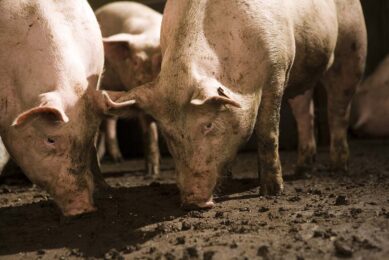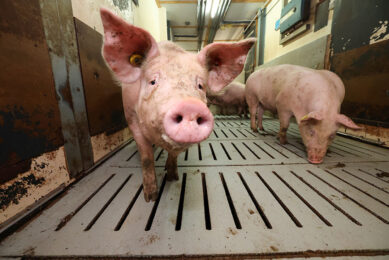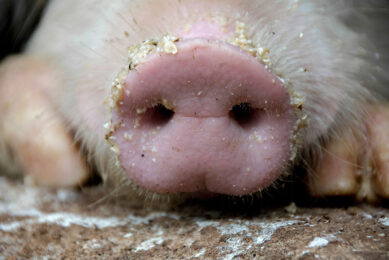Business Update – PCV2 vaccine approved; software takeover

Every week, Pig Progress looks back on the previous week’s business news, conveniently capturing and summarising the most important business updates in the pig industry. Here are this week’s highlights.
Boehringer gets EMA approval for PCV2 vaccine
Animal health company Boehringer Ingelheim announced that the European Medicines Agency (EMA) has approved the use of its PCV2 vaccine Ingelvac Circoflex for use in pregnancy and lactation in sows.
The vaccine had already been approved for use in piglets. In studies, it has been demonstrated that sow vaccination with Ingelvac Circoflex has significant positive effects on the reproductive performance, in particular the farrowing rate, the number of piglets born alive and weaned per litter.
Adisseo: Advancia International Seminar
More than 90 participants attended the 9th Advancia International Seminar, which was held in Prague, Czech Republic, on August 24, and organised by feed additives company Adisseo, prior to the 20th European Symposium on Poultry Nutrition (ESPN).
Advancia is a scientific and technical community, gathering scientists and nutritionists to share research progresses on sulphur amino acids. Speakers included Prof Walter Bottje, University of Arkansas, USA; Dr Mickaël Briens, Adisseo, France; Prof Sammy Aggrey, University of Georgia, USA; Dr Sophie Tesseraud, INRA Tours, France; Dr Mario Estevez, University of Extremadura, Spain; Prof Mingan Choct, University of New England, Australia and Prof Peter Surai, Scottish Agricultural College, UK.
AgroVision acquires AgroSoft
Netherlands-based livestock management software programme AgroVision acquired shares of its Danish competitor AgroSoft. In a press release, AgroVision says that the result is now Europe’s market leader for pig industry software.
Long-term projections were at the basis of the takeover. The combined company now has more than 25,000 users, 130 FTE and an annual revenue of over €14 million. The deal was closed on September 1, 2015.
Biomin: New plant in Panama
Biomin, producer of natural feed additives, reported to have opened a production plant in Panama. The new plant will allow for growth and quicker delivery to the company’s distributors and customers in new and existing markets throughout the Americas.
The plant produces the company’s product Mycofix, with plans to produce PoultryStar, in the future. The site has an installed production capacity of 3,120 tonnes per year based on one packaging station and a single shift. Its starting production goal is 6,240 tonnes per year with 2 shifts. Maximum production capacity can reach 12,480 tons per year with the addition of a 2nd packaging station.
Nutreco renames animal nutrition research
Nutreco‘s global animal nutrition research centres will be renamed Trouw Nutrition R&D. This change is part of the strengthening of its global animal nutrition activities under one brand. Trouw Nutrition R&D now encompasses 5 research centres operating in the Netherlands, Spain and Canada.
The company will also double its investment in R&D and innovation over the next years in both animal nutrition and fish feed. “Our R&D strategy remains unchanged and our innovative strength is focused on 3 areas: Life Start, Health & Welfare and Feed Efficiency,” said Leo den Hartog, director Trouw Nutrition R&D.
Diamond V: Pre-harvest reduction of foodborne pathogens
US-based feed additives producer Diamond V has announced the patent-pending use of Diamond V Original XPC as a ‘method for foodborne pathogen reduction in livestock’.
Feeding Original XPC as recommended during food animal production helps reduce the prevalence and numbers of Salmonella and Campylobacter in the animal, production environment, and food processing plant, as described in the pending patent and supported by numerous scientific studies. Reducing these pathogens pre-harvest can improve food safety.
InVivo Labs: Identifying ruminant DNA
Last but not least: one more approval. The InVivo Labs-AdGène laboratory in Normandy, France has received accreditation for identifying components from ruminant origin in animal nutrition.
The lab was approved by the French ministry of Agriculture, Agrifood and Forestry. The lab uses PCR-techniques to detect elements from ruminant origin in transformed animal proteins (TAPs) used in animal nutrition. The laboratory, acquired by InVivo last July, is the first in France to receive this kind of accreditation.
 Beheer
Beheer








 WP Admin
WP Admin  Bewerk bericht
Bewerk bericht